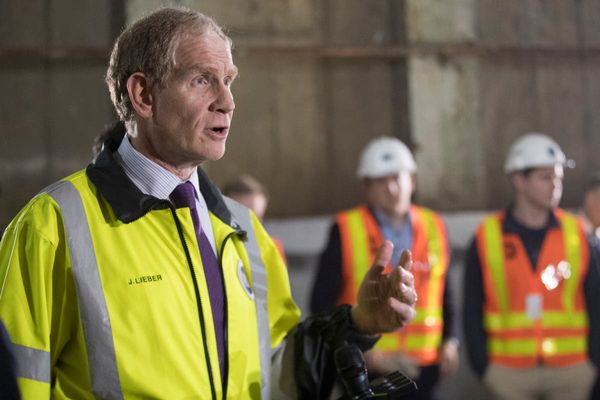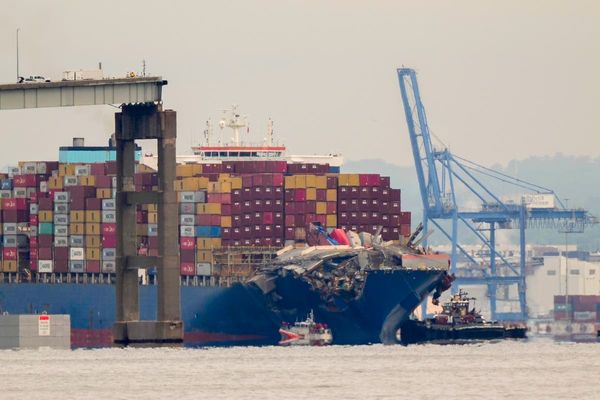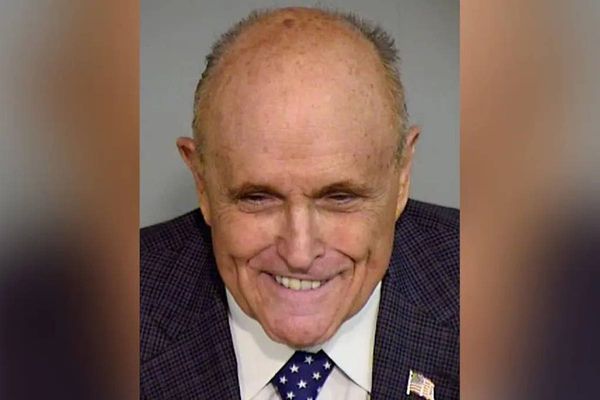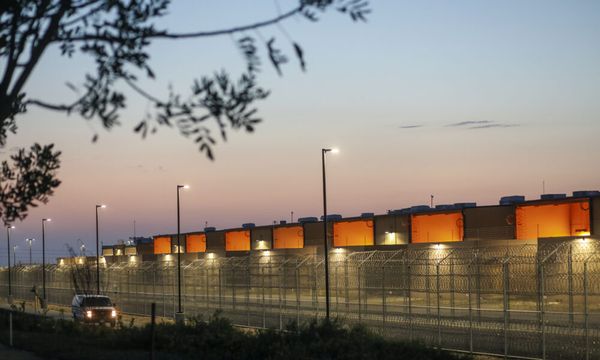At first, Aunty Eva Jo Edwards wasn't ready to give evidence at Victoria's Indigenous truth-telling inquiry.
But the Stolen Generations survivor and Bunurong, Mutti Mutti and Yorta Yorta woman this week decided she was ready to tell her story.
With the legal powers of a royal commission, but led and designed by First People, the work of the Yoorrook Justice Commission is well underway.
"Yoorrook" means truth in the Wemba Wemba/Wamba Wamba language, which is spoken in the north-west of Victoria.
The commission is grappling with no simple task: it aims to establish an official record of the impacts of colonisation in Victoria, to document past and ongoing injustices against Indigenous people.
It was formed in 2021 following a request of the First Peoples' Assembly of Victoria, to run alongside the treaty process.
The commission is now accepting evidence from Victorian Indigenous individuals and organisations, after holding its first public hearings with Elders in April this year.
On Monday, in a hearing room adorned with native flowers and gum leaves at the commission's offices in Collingwood, Aunty Eva Jo Edwards spoke of her experiences with the child protection system, first as a child and more recently, as a grandmother.
"It just goes on and on, that we are not heard, that we are not listened to, and they are just quick to take our kids without any real explanation," she told the hearing.
Ms Edwards is known for her advocacy, with roles on the Koori court and the Stolen Generations reparations committee, but the stories she shared with the Yoorrook commission were deeply personal.
She spoke of the impact of being taken from her family in Swan Hill when she was five years old.
"I was never told I was loved, kissed or needed," Ms Edwards said.
She told the hearing she lived for more than a decade in homes and has no memory of her childhood before the institutions.
"My daughter one day asked me, why didn't I ever hug her or kiss her good night when they were little?" Ms Edwards said.
"I said, 'look, those things were never given to me'.
"At the time when she asked me this, it was heartbreaking.
"That's when I realised what I'd done to my kids, and it was pretty traumatic."
More Indigenous Victorians urged to come forward
While Ms Edwards said her experience of speaking to the commission was difficult, she felt optimistic that Yoorrook would make progress.
She hoped the findings and recommendations of the many royal commissions, reports and inquiries that had come before it would not be forgotten.
"It does take a toll on you, but I see it also as part of my healing," Ms Edwards said.
She is encouraging other Indigenous Victorians to consider sharing their stories, too.
"It's a great opportunity to get the truth out there," she said.
"Whatever your truth is, it's important to tell it."
For those without a story to tell, Ms Edwards has a simple message: "Listen to us".
Age of criminal responsibility to be discussed
The Yoorrook Justice Commission's December hearings are focused on the child protection and criminal justice systems.
In Victoria, Aboriginal people are around 14 times more likely to be imprisoned than non-Aboriginal people, while Aboriginal children are about six times more likely to be jailed than non-Indigenous children.
One key issue raised with the commission is the push to increase the age of criminal responsibility, which has been subject to a significant campaign by Aboriginal leaders and groups.
"Ten is not an appropriate age to attribute criminal responsibility for a child," counsel assisting Fiona McLeod SC told the hearings this week.
"And for that matter, 14 is not an appropriate age for a custodial sentence."
The criminal age of responsibility is due to be considered at a meeting of federal, state and territory attorneys-general today.
A recent decision by the Northern Territory government saw it become the first jurisdiction to raise the age to 12.
A spokesperson for the federal Attorney-General Mark Dreyfus described that move as "evidence of progress."
Victorian Premier Daniel Andrews has indicated willingness to raise the age and said he was optimistic about the chance of progress under Mr Dreyfus.
"We don't rule out going it alone … but I do think a nationally consistent approach is the best way to go," Mr Andrews said.
He also thanked those like Ms Edwards, who have shared their experiences with the Yoorrook inquiry.
"You have to go through these processes as traumatic as they are, so I couldn't be more grateful to those who are giving evidence," Mr Andrews said.
Commission looks ahead
Professor Eleanor Bourke, a Wergaia and Wamba Wamba Elder and chair of the commission, said after hearing from First Peoples who experienced the impacts of child removals this week, the next week of hearings will focus on the criminal justice system.
"Just like child protection, First Peoples are significantly over-represented in Victoria's criminal justice system," she said.
"Next week, Yoorrook will hear testimony around why this is happening, why it hasn't been addressed, and what is needed to fix it."
A further two rounds of hearings are anticipated in early 2023.
The Yoorrook Justice Commission had been asked to provide its final report by June 2024 but requested for an extension until June 2026, in part due to COVID-19 delays.
A Victorian government spokesperson said that request was still under consideration.







